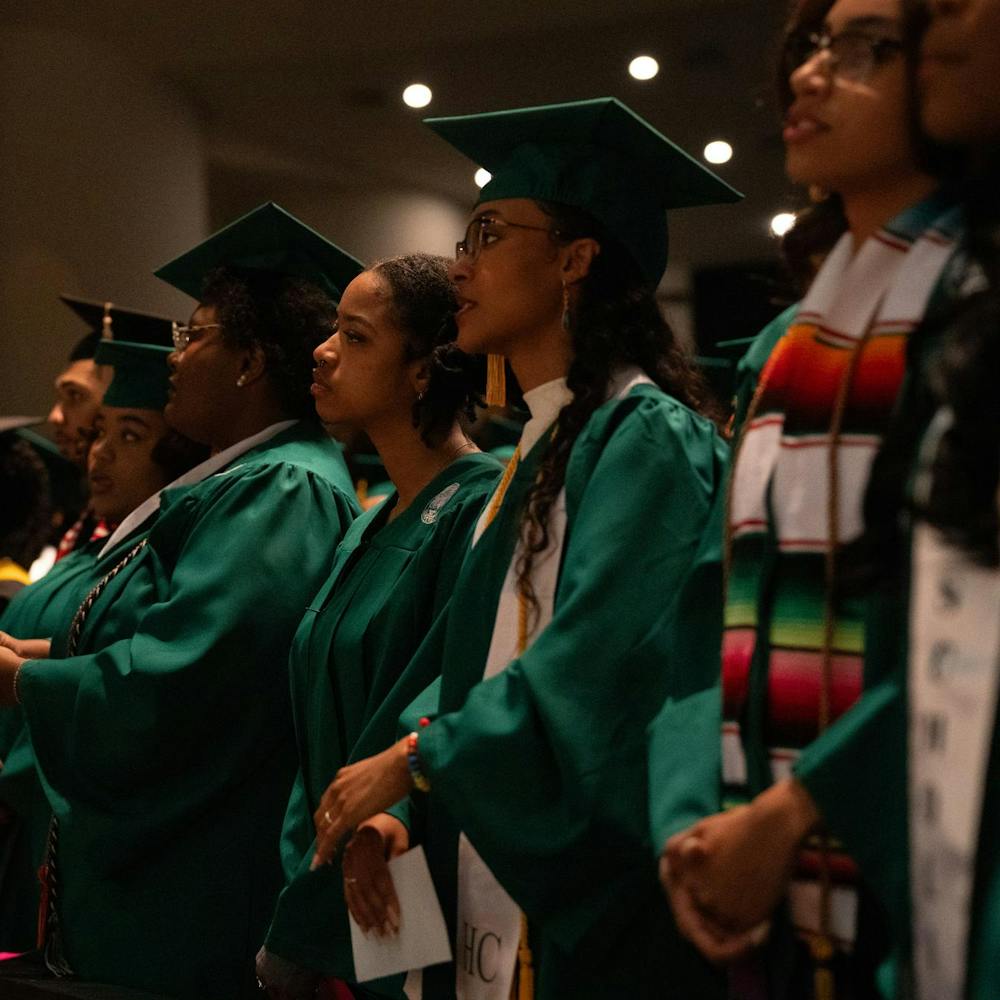When Shana Harris started looking at law schools, her attention immediately went to the rankings.
“You wouldn’t want to apply to a law school that doesn’t have a great reputation because (students) have to face the possibility of not getting a job in the future,” said the social relations and policy senior.
According to a Kaplan Test Prep survey given to pre-law students in June, 32 percent of law school applicants said rankings were the most important factors in choosing a school to study law. The survey said about 86 percent of the students ranked it as either most important or somewhat important.
The survey also asked new law school graduates the same question, and only 17 percent said they would tell prospective law students rankings are most important. About half of new law school graduates said they would suggest to prospective law students that job placement rates and affordability are most important.
Charles Roboski, MSU’s assistant dean of admissions and financial aid for the MSU College of Law, said looking at rankings is OK and provides general information, but students shouldn’t base decisions on them.
“(Students should) do some basic research,” Roboski said. “Look at the criteria according to you and what you want to do with a law degree.”
Harris, along with about 500 other pre-law students, participated in the Law School Fair on Wednesday in the Huntington Club in Spartan Stadium featuring more than 90 law schools from across the nation, with hopes to explore various schools’ key aspects other than rankings.
Harris said she had several schools she wanted to talk to based on her criteria to see which school was a right fit for her.
“(Job placement percentages are) very important because I look at that automatically. I looked at Michigan State’s, (and it had) over 90 percent,” Harris said. “That’s a good percentage, (whereas) Cooley Law School is only 70 percent. I don’t want an average chance of getting a job.”
Although rankings can provide useful information, Rick del Rosario, the assistant director of student recruitment at University of Miami School of Law, said rankings should play no part in the decision making.
“Rankings are very complicated ways to interpret where you should potentially be going to law school,” del Rosario said. “The best way to determine where to go to law school is to find a program that fits you, and find a school that matches well with you.”
Like Harris and countless others, international relations junior Matt Fagan said he checked law school rankings out, but not just which law school was best. Fagan checked out a list of the 30 best locations to go to law school and thinks location is key in choosing a school.
“It’s three years where you can go out of town and have a different life than you have had your entire life,” Fagan said. “When people pay all their attention to the numbers, I think that’s kind of silly. It doesn’t matter how high you go (up the rankings), it’s just what’s available to you after and how well you do.”
Support student media!
Please consider donating to The State News and help fund the future of journalism.
Discussion
Share and discuss “Study: look beyond law school rankings” on social media.







